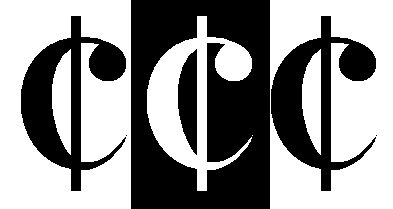ROWLAND/KUDRITSKAYA DUO – ASSEMBLY ROOM 5TH DECEMBER 7.30
Before a note of this imaginative 'Parisian' programme had been played, we knew from those soulful open strings as Daniel Rowland tuned up that we had on stage a violin that loved to be played and a player that loved to play it. And how! Rowland's passion for the music shone through every one of the evening's very different works. From the poignant sorrow of Mozart's E-minor sonata following his mother's death, to the wild virtuosity of Stravinsky, this was no mere display, but a powerful communication of the heart of the music.
There were of course three other participants: a piano, a pianist, and a bow. Natacha Kudritskaya complemented Rowland superbly, augmenting his intensity and adding a touch of discipline when appropriate. At times, as in the Franck Sonata, she could make the piano sound twice its size, while at others, such as in Mozart's E-major Trio, she produced the most delicate of heart-rending pianissimos.
And then there is the bow. Rowland's bow arm is that of a magician, albeit a very energetic one. Stravinsky's pyrotechnics proved too much for his favourite old bow / wand which started to shed hairs at an alarming rate, allowing the concert to double as a nicely-controlled experiment in the importance of the bow in string instrument playing. Bow No.2 featured in the second half, and I for one was happy that the now slightly bald bow No.1 was reinstated for the encore – Stravinsky again but in a mostly gentle mood.
The programme itself consisted entirely of pieces associated with Paris: from Mozart, composing on a rather unsuccessful visit in 1778, to Stravinsky arranging the Fairy's Kiss ballet in 1934. Though the Mozart and Stravinsky pieces reflect little of Paris, the remaining works show both the developing French style in Franck and Boulanger and the cosmopolitan influence that Paris nurtured in its resident composers: Egyptian, Spanish and English for Debussy and Spanish/Basque for Ravel. The result was a varied and entertaining series of works that contrasted well and allowed both Kudritskaya and Rowland to show how well they could convey the essence of a range of musical styles and moods.
All too often players appear on stage, play and depart as if we are watching a live relay. Rowland and Kudritskaya interacted masterfully with the audience. Especially sensitive was their acknowledgment of the attentive presence of four young children from the Prebendal School in the front rows. I asked them what I should put in my review. "Brilliant". It was. I hope they come back for more.
Chris Darwin
